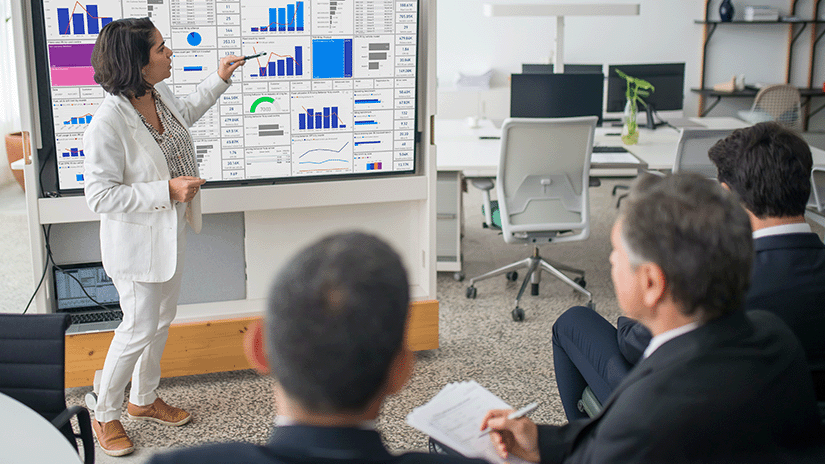
There’s a reason the term ‘informed decision’ is used so frequently because without all the information you are unlikely to make the right decision. When it comes to fleet management you need incredibly accurate information to avoid expensive mistakes.
Fleet management is a delicate juggling act of cost, performance, efficiency, and return on investment. The questions are always: ‘is my fleet doing enough for the business to justify the expense? Is there something we can do to lower costs without risking performance? Is my fleet losing money that I’m not aware of? How can I fix it?
In order to answer these questions, you need very specialised data, as well as expert data analysts who can correctly interpret this data. Simply collecting the information is only half of the solution, the real picture only becomes clear when the data is turned into reports that can be used to make the right decisions for your fleet.
A Pyramid of Data
To understand the scope of data you need to properly run your fleet, picture a pyramid.
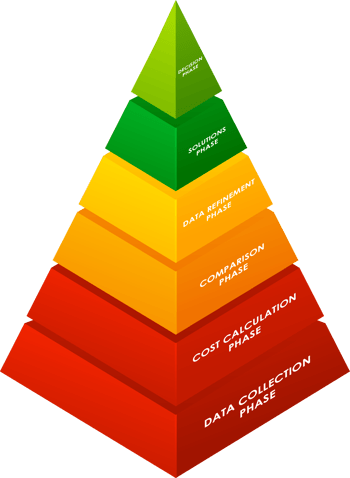
d
Data collection phase
The base is where you collect data: Telemetry systems that track engine health, routes, idling times, driver behaviour, refuels, and maintenance requirements, to name just a few. All of this data is collected in real-time.
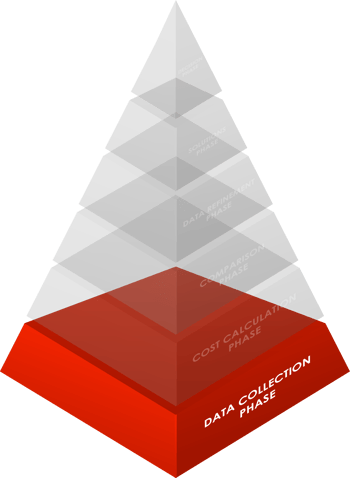
Cost calculation phase
The next level up is where all the costs are calculated. This allows you to calculate the operating cost of every vehicle in your fleet. And all of the data collected means you can ‘zoom in’ on each individual vehicle/driver and see where costs are running high.
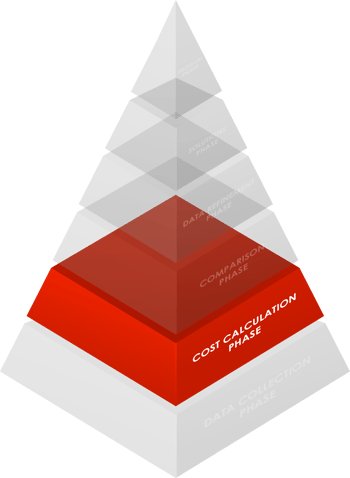
Comparison phase
At the next level, you start doing comparisons: now that you know what your running costs are you need to figure out whether it’s above/below industry average. Are your vehicles using more fuel than similar vehicles on similar fleets? If so, why?
This is where expert data analysts really make a difference. They have access to industry data, current averages and a host of other information that will show you where your fleet sits in terms of efficiency.
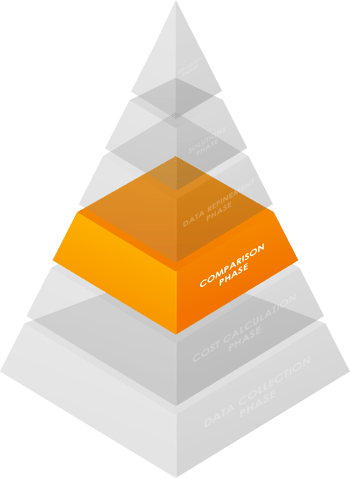
Data refinement phase
One level up and the data is further refined to show where your fleet is losing/saving money. This is where we dig into the details of why your fleet is costing more than necessary. It could be anything from fuel fraud to poor vehicle maintenance or driver behaviour.
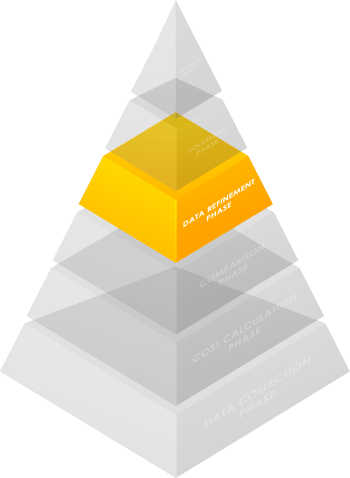
Solutions phase
The next level in the pyramid is using all of the above-mentioned data to find realistic solutions. Once you’ve identified where and why problems are occurring, you can look at options to start fixing the problems. It could be as simple as modifying routes or replacing fuel-guzzling vehicles with more efficient units.
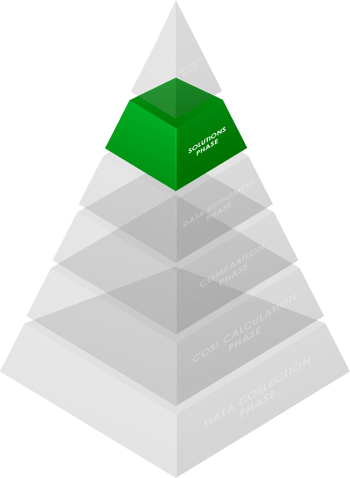
Decison phase
The very top of the pyramid is the decision phase: now you have all the information, you have identified the problems and you have a selection of solutions. Now it’s simply a case of deciding which solutions to implement and when.
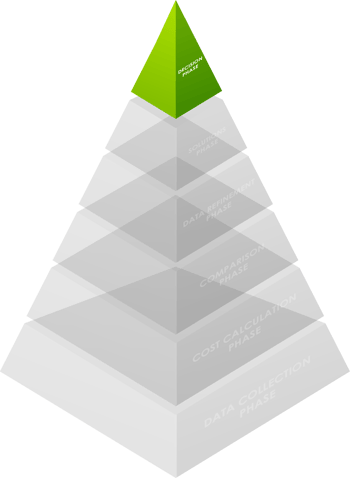
As the above ‘pyramid’ example shows, correct fleet decisions can only be made once you have accurate data that has been expertly interpreted. If a mistake is made on any of the lower levels, you run the risk of making the wrong choices for your fleet and risk further unnecessary costs down the line.
Expensive mistakes
Incorrect data interpretation will lead to a misunderstanding of your true fleet operating cost. This can lead to businesses not knowing where to invest because they do not understand what it actually costs them to service certain customers. If you don’t have a clear picture of your fleet operating costs you could be running a loss with certain clients.
Another important data point is the split between business and private costs/usage within your fleet. Once you have a clear view of this, you will know how much you should invest in technology like routing or tracking applications to better manage these KPIs whilst still hitting your ROI.
It’s a holistic approach
It all comes back to the data and ensuring everything is accurately collected and reported. As the ‘pyramid’ concept shows a holistic approach starts with collecting all the nitty-gritty fleet data and systematically refining this data into a clear picture of your fleet. This is the only way to identify problems and risks and identify solutions that will make a difference.
When it comes to modern-day fleet management we cannot emphasise enough how crucial the data collection and reporting process is. There simply is no other way to identify problems and implement the correct solutions. This is something every fleet should have in place in order to operate effectively.
Find out more about what data you can get from our mobile app.